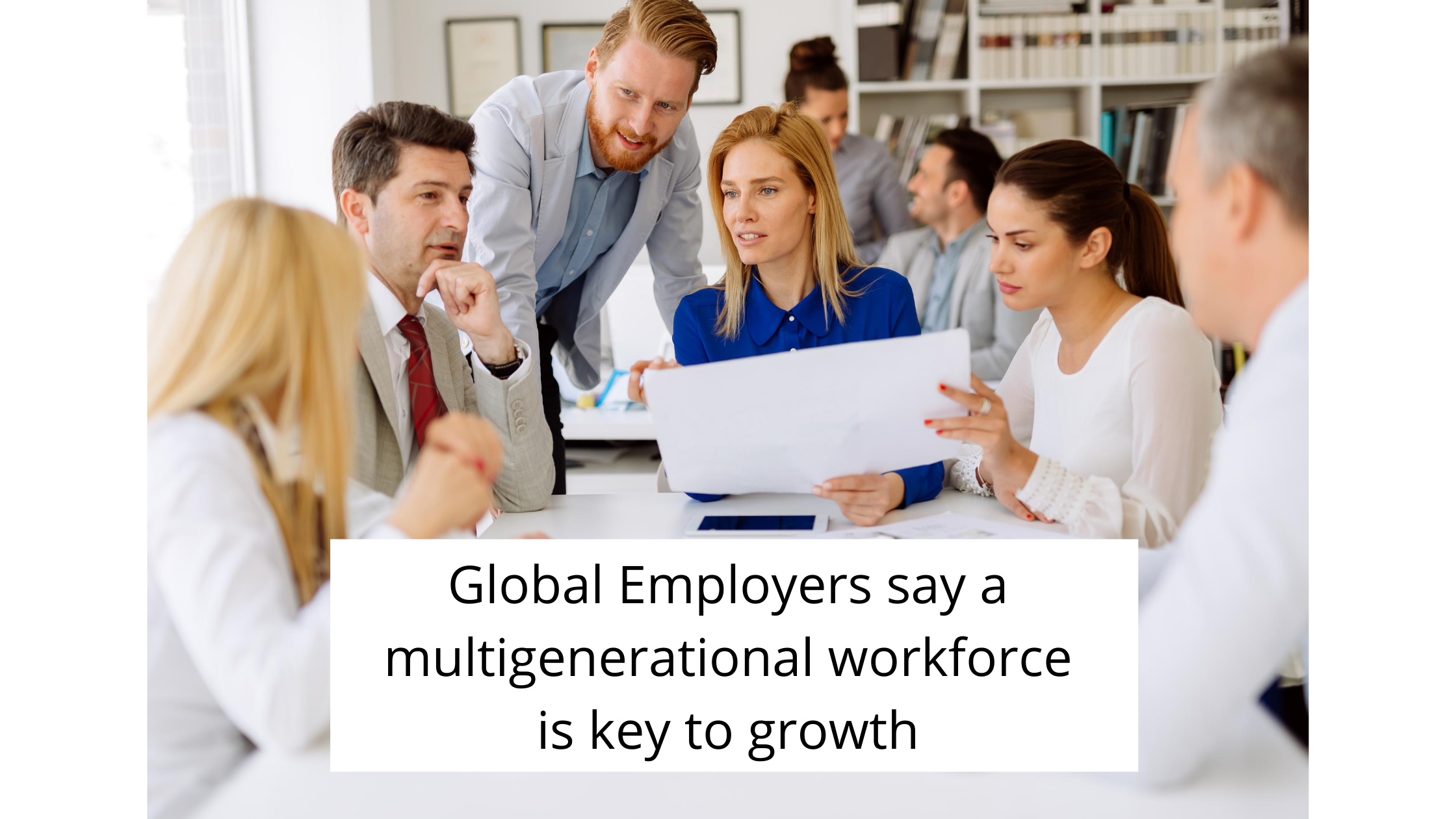Multigenerational Workforce Management is Key for Growth

In today’s workplace this is the first time that 5 generations of employees are working together. And this age diversity can be a challenge for many companies, and many executives are thinking about the rapidly-aging workforce.
AARP released a survey, indicating that 83 percent of global business leaders recognize that multigenerational workforces are key to the growth and long-term success of their companies see an opportunity.
- 70 percent favor taking steps to promote unbiased recruitment practices;
- Three in four (74 percent) would provide training and lifelong learning opportunities for older employees;
- Two in three (68 percent) would purposefully design mixed-aged teams to leverage the advantages that both younger and older employees bring to the table; and
- Over half (54 percent) are providing more flexible work arrangements, including teleworking.
AARP CEO, Jo Ann Jenkins says, "Research shows that age-diverse workforces have a positive effect on employee engagement, productivity and the bottom line. It is heartening to see that business leaders around the world recognize this value, even as we've been concerned the pandemic could fuel ageism."
To fully realize the opportunity age diverse workforces many organizations will need to align their recruitment, training, communication processes to meet the expectations of multigenerational workforce.
4 ways to align HCM Technology with Multigenerational Workforce Management
Recruitment
Competing for top talent at every level requires HR and recruiters to be able to post job quickly and engage applicants how they want to search and apply. OnePoint HCM has introduced many enhancements to our recruitment functionality including job board integrations, fully mobile application process, quick apply, auto-responses via email and text. This automates the process for recruiters to find applicants and provide an easy application experience.
Training
A strong focus on employee development can pay dividends to the employee, manager, and organization. There have been many studies about the skills gap and the lack of knowledge transfer between baby boomers and younger predecessors. Because of this employee also recognize the value of development and are eager to advance their skills and career development.
Investing in training programs is a great step toward empowering top employees. Delivering training within your HCM platform make it easier to link professional and personal development to performance requirements and annual goals. Moreover offering a wide range of training and flexible options can help employees build skills no matter what level or tenure at the company.
Communication
One of the keys to successful Multigenerational Workforce management is recognizing that people consume information differently. Knowing how to effectively communicate with an employee is a critical management tool. Modern HCM technology should facilitate communication in a many formats.
The most effective HCM technology solutions should offer a variety of options to facilitate communication in whatever way that best meets the employees’ needs. Email, text messages, on-screen alerts, notifications, pop-up alerts, voice mail, and even face-to-face communication all play a role in keeping employees updated on important company information. And presenting employees with a familiar communication experience no matter what device they are using or where they are empowers self-service and improves engagement.
Flexibility
As more and more workers and organizations embrace telecommuting and flexible work schedules, there is a need for workplace technology that can keep up with a mobile and distributed workforce. HCM systems need to be built to support your workers and provide an easy self service experience no matter what stage in the lifecycle, location or device preference.
From recruiting and onboarding, to time keeping and accruals, payroll and benefits OnePoint HCMs platform offers the infrastructure to support your workforce and the flexibility to handle their personnel and HR tasks conveniently.
Citation** AARP conducted their survey in the fall of 2019 and the spring of 2020. The study surveyed nearly 6,000 employers in 36 countries. More than 70 percent of survey data were collected during the pandemic, a time when millions of older workers in the U.S. and elsewhere are unemployed, furloughed or facing uncertainty in their careers.
Subscribe to updates
Get the latest posts delivered to your inbox.
